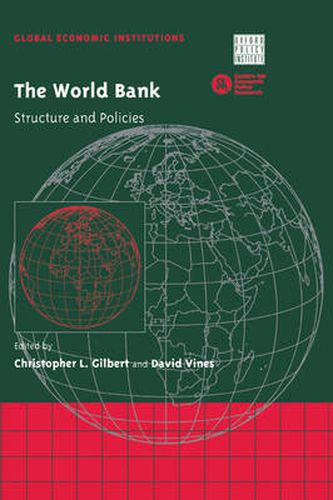Readings Newsletter
Become a Readings Member to make your shopping experience even easier.
Sign in or sign up for free!
You’re not far away from qualifying for FREE standard shipping within Australia
You’ve qualified for FREE standard shipping within Australia
The cart is loading…






The World Bank is dedicated to the promotion of sustainable economic development and to poverty reduction throughout the developing world. It faces new challenges as capital shortages are replaced by large but volatile capital flows. The contributors to this volume argue that the Bank’s greatest asset is its accumulated knowledge and experience of the development process, and propose that it organise itself around the concept of a ‘Knowledge Bank’. They propose a shift in priority, away from lending with conditionality imposed on borrowing governments, towards assistance to governments in devising good development strategies. Part I examines the existing structure of the Bank and considers the World Bank as an institution. In Part II the effectiveness of World Bank assistance is evaluated. This book provides essential reading for politicians, civil servants, workers in the non-official sector, and academics and students involved or interested in the development process.
$9.00 standard shipping within Australia
FREE standard shipping within Australia for orders over $100.00
Express & International shipping calculated at checkout
Stock availability can be subject to change without notice. We recommend calling the shop or contacting our online team to check availability of low stock items. Please see our Shopping Online page for more details.
The World Bank is dedicated to the promotion of sustainable economic development and to poverty reduction throughout the developing world. It faces new challenges as capital shortages are replaced by large but volatile capital flows. The contributors to this volume argue that the Bank’s greatest asset is its accumulated knowledge and experience of the development process, and propose that it organise itself around the concept of a ‘Knowledge Bank’. They propose a shift in priority, away from lending with conditionality imposed on borrowing governments, towards assistance to governments in devising good development strategies. Part I examines the existing structure of the Bank and considers the World Bank as an institution. In Part II the effectiveness of World Bank assistance is evaluated. This book provides essential reading for politicians, civil servants, workers in the non-official sector, and academics and students involved or interested in the development process.